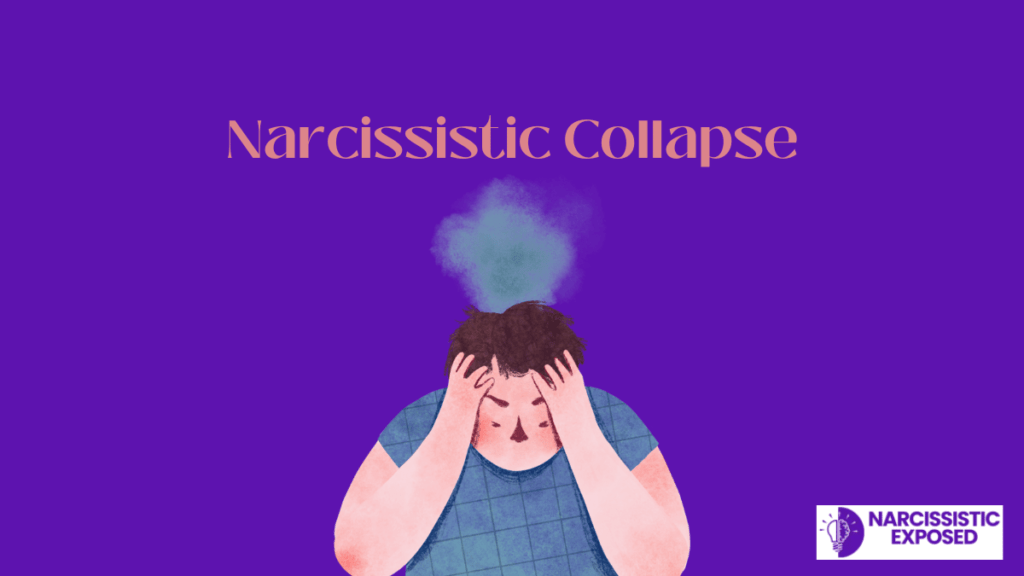
Narcissism, often discussed in psychology and personal relationships, typically conjures images of excessive self-love and an inflated sense of importance. But a pressing question many have is: Can someone turn into a narcissist over time? This article explores whether personality changes can lead to the development of narcissistic traits, considering both psychological insights and everyday behaviors. Understanding the dynamics of narcissism is crucial, not only for personal knowledge but also for managing relationships effectively.
Table of contents
Core Traits of Narcissism
Narcissistic Personality Disorder (NPD) is marked by several distinctive traits that can profoundly influence one’s behavior and interactions. Central to narcissism is an exaggerated sense of self-importance, where individuals believe they are unique and superior to others. This often accompanies a constant need for admiration and attention.
Other core traits include:
- Lack of Empathy: Narcissists struggle to recognize or empathize with the feelings and needs of others, making their social interactions often one-sided and self-serving.
- Entitlement: They carry an air of unearned entitlement, expecting special treatment and compliance from others without reciprocity.
- Exploitative Behavior: Narcissists often exploit others without guilt or remorse to achieve their ends.
- Envy: They may envy others or believe others are envious of them, leading to competitive and aggressive behavior.
- Arrogance: Narcissists frequently display haughty and arrogant attitudes, which can manifest in disdainful or patronizing behavior.
These traits paint a picture of a personality type that is often challenging to interact with and can cause significant distress to both the narcissist and those around them. Understanding these traits is essential for identifying narcissistic behaviors in oneself or others.
Can Personality Change Into Narcissism?
The development of narcissistic traits can indeed occur, but it typically involves a complex interplay of genetic, psychological, and environmental factors. Personality is relatively stable over time; however, significant life experiences or changes in one’s environment can influence one’s personality traits, including the emergence of narcissism.
Genetic Predisposition: Some individuals may have a genetic predisposition to traits such as high self-esteem or assertiveness, which, under certain conditions, can evolve into narcissistic behaviors.
Environmental Influences: Prolonged exposure to specific environments, such as highly competitive fields or situations where excessive praise and attention are common, can encourage the development of narcissistic traits. Additionally, childhood experiences involving excessive pampering by parents or, conversely, extreme criticism can contribute to narcissistic personality development.
Crisis and Stress: Sometimes, during severe personal crises or stress, individuals might adopt narcissistic behaviors as a coping mechanism to protect their self-esteem. These behaviors might initially emerge as temporary traits but can become more ingrained if reinforced by success or social feedback.
It’s important to note that while personality traits can shift towards narcissism, not everyone experiencing these factors will develop Narcissistic Personality Disorder. Such transformations often require a confluence of multiple factors and a lack of counterbalancing influences that could mitigate the development of extreme traits.
Preventing Narcissistic Development
While some factors contributing to the development of narcissistic traits are beyond individual control, such as genetic predispositions, there are proactive steps one can take to minimize the likelihood of developing or solidifying narcissistic behaviors:
Foster Empathy: Actively practicing empathy can counteract narcissistic tendencies. This involves regularly putting oneself in others’ shoes, understanding different perspectives, and responding with compassion in social interactions.
Cultivate Self-Awareness: Self-reflection can help individuals recognize and adjust to potentially narcissistic behaviors. Journaling, mindfulness practices, and therapy can facilitate a deeper understanding of one’s motivations and actions.
Seek Feedback: Openness to constructive criticism is crucial. Encouraging honest feedback from trusted friends, family, or professionals can provide insights into one’s behavior that might be difficult to self-identify.
Develop Healthy Relationships: Surrounding oneself with people who exhibit healthy interpersonal behaviors can be a model for positive interactions. These relationships often involve mutual respect, listening, and genuine concern, which can positively influence one’s behavior.
Professional Guidance: In cases where narcissistic traits are noticeable and potentially disruptive, seeking help from a psychologist or counselor can be beneficial. Professionals can provide strategies tailored to individual needs to help manage or alter these traits.
Implementing these strategies can help prevent the development of narcissistic traits and promote a more balanced, empathetic approach to interactions with others.
Conclusion
Understanding whether one can turn into a narcissist involves recognizing the complex interplay of personality traits, environmental influences, and personal experiences. While the core traits of narcissism are deeply ingrained and often linked to both genetic factors and early life experiences, certain life events and stressors can catalyze the development of narcissistic behaviors in adulthood.
Preventing the solidification of these traits is possible through self-awareness, empathetic engagement, and proactive mental health practices. By fostering healthy relationships and embracing constructive feedback, individuals can maintain a balanced self-image and prevent the escalation of narcissistic tendencies.
Ultimately, knowledge and awareness are essential. Recognizing the signs of emerging narcissistic traits and taking active steps to counteract their development can lead to healthier interactions and personal growth. For those seeking to understand or change these dynamics, professional help is a valuable resource. Remember, change is possible, and taking the first step toward understanding is a significant stride toward better mental health and well-being.
Frequently Asked Questions (FAQs)
Q: Can a significant life event trigger narcissistic behaviors?
A: Yes, major life events such as significant career advancement, financial success, or even traumatic incidents can trigger narcissistic behaviors, especially if they lead to increased power or admiration from others. These events can inflate self-esteem disproportionately, prompting narcissistic behaviors.
Q: How can I tell if I’m developing narcissistic traits?
A: Signs that you might be developing narcissistic traits include a growing sense of entitlement, persistent fantasies about power or success, exploiting others for personal gain, lack of empathy, and frequent envy or belief that others are envious of you. Regular self-reflection and feedback from close ones can help identify these traits early.
Q: Are narcissistic traits always negative?
A: While narcissistic traits are often viewed negatively, traits like confidence and assertiveness can be positive if balanced with empathy and consideration for others. Problems arise when these traits become excessive and lead to manipulative or harmful behaviors.
Q: Can upbringing influence the development of narcissistic traits?
A: Yes, upbringing plays a significant role in the development of narcissistic traits. Parenting styles that are either overly permissive or extremely critical can contribute to the formation of such traits by failing to teach appropriate boundaries and self-value based on realistic self-assessment.
Q: What steps can I take if I recognize narcissistic traits in a loved one?
A: If you recognize narcissistic traits in a loved one, it’s essential to maintain clear boundaries, communicate openly about how their behavior affects you, and encourage them to seek professional help. It’s also crucial to protect your mental health by seeking support.




